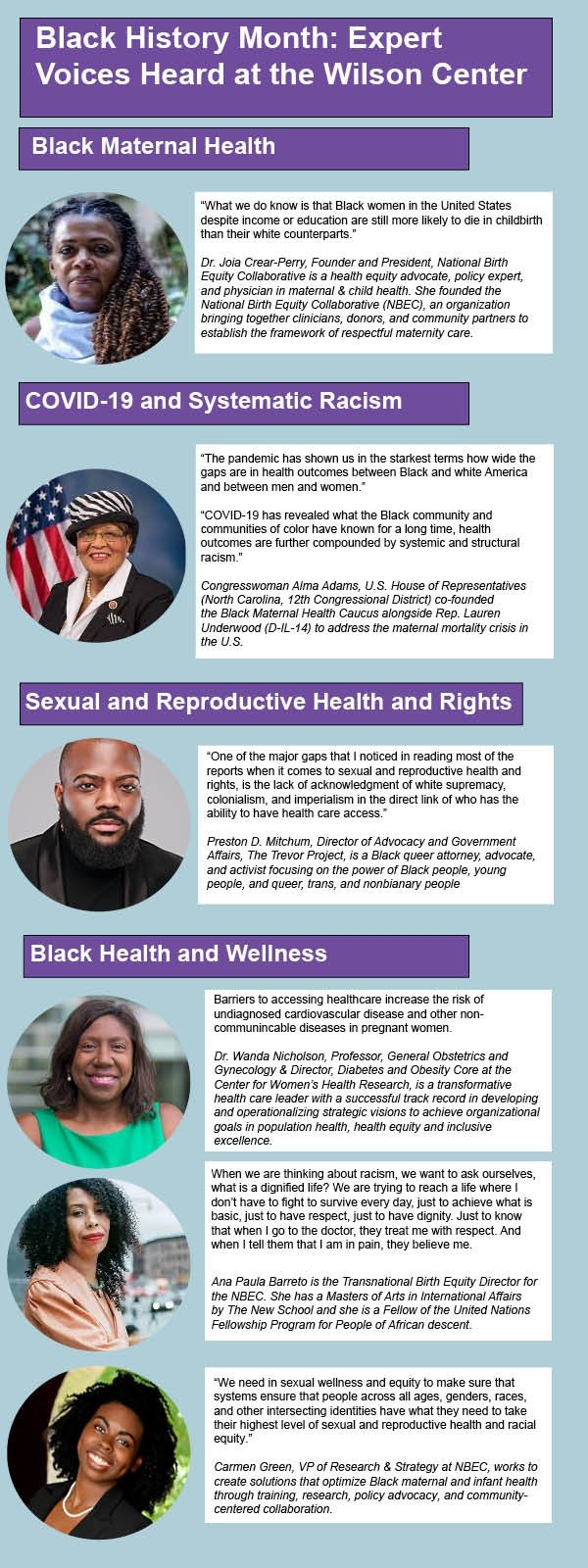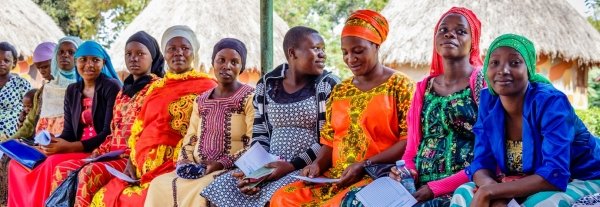MHI Celebrates black history month

|
February is Black History Month. This year, the theme of the month is Black and African American Health and Wellness. At the Maternal Health Initiative, we often research and publish work highlighting some of the disproportionate risks that Black pregnant people face during pregnancy and post-partum. According to the Centers for Disease Control and Prevention, Black women are three times more likely to die from a pregnancy-related cause than their white counterparts even when controlling for education and socioeconomic status. They are also 50 percent more likely to have a preterm birth and their babies are twice as likely to die after birth as their white counterparts. These disparities can be traced to systemic injustices throughout the United States and our health systems.
“Leaders at every level, everywhere, must take on this issue. It cannot be for Black women alone to fight for their rights and to fight for their dignity,” said Vice President Kamala Harris during a White House Roundtable on Black Women’s Maternal Health. “Black women deserve to be heard. Their voices deserve to be respected. And like all people, they must be treated with dignity.”
Below is a sample of our work from the past several years exploring the issues of systemic racism in maternal health care in the U.S. and globally, as well as race and health linkages to COVID-19 and non-communicable diseases. You can also find quotes from several prominent experts we’ve had the honor of hosting at the Wilson Center who work to improve maternal and newborn health here and abroad, and challenge inequities in quality of and access to care.
“The Wilson Center is once again proud to celebrate Black History Month. This February, the Center will feature content that examines the issues and challenges that have paved the way for progress in the Black and African American struggle for justice, autonomy, hope, and dignity.
In the spirit of our mission to unite the world of policy and ideas, the Wilson Center strives to include Black and African American voices and those of all minorities throughout the breadth of our programs.”
|





